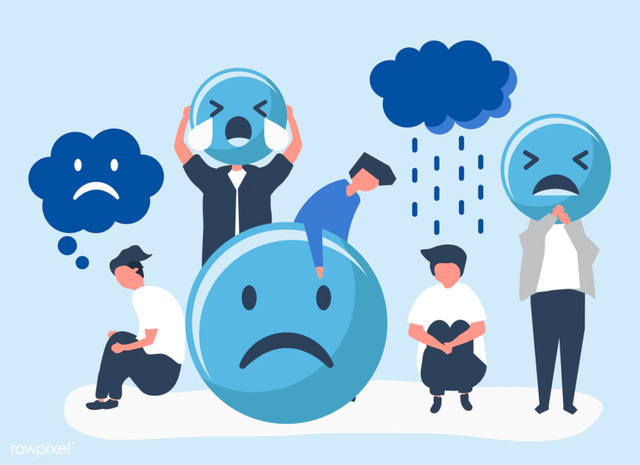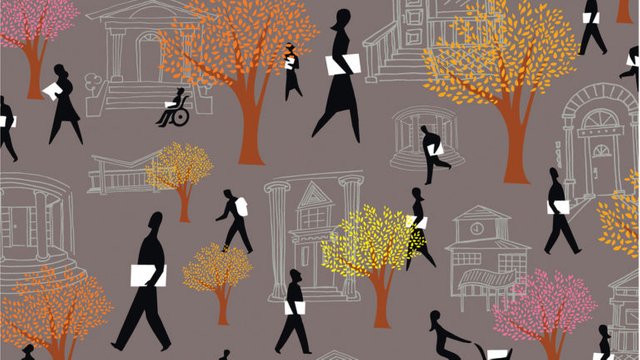It is almost April and that means one thing: the start of the spring season in MetroWest. You can expect longer days and more sunlight. If you have been suffering from seasonal depression since the start of 2020, you will be needing the spring more than other people. You will probably have been looking forward to this time of year.
Do you think you are suffering from seasonal depression? Let’s learn more about what it is and its symptoms. We also have some useful tips on how to manage your spring depression this year.
What is Seasonal Affective Disorder?

Are you feeling down and unmotivated? You may be suffering from Seasonal Affective Disorder. It is commonly referred to as SAD and it is a type of depression that is dictated by the seasons.
What are the symptoms of SAD? The following are common with this type of depression:
- Low mood
- Low energy
- Lack of interest in your favourite hobbies
- Irritability
- Not wanting to socialize
- Feeling worthless
- Sleeping longer than usual
- Eating more and gaining weight
Often, SAD can prevent you from being productive at work and takes a toll on your home life too. It is a condition that should be taken seriously and not ignored.
How Long Does SAD Last?
Seasonal Affective Disorder can last for many months. This depends largely on the person it is affecting, as well as environmental factors. For example, if you live far away from the equator, it is thought that SAD will affect you the most, with shorter days and less light during the day. Your symptoms will last until the days are longer and there’s more sunlight.
Typically, SAD can start in the fall and gradually get worse during the winter. This is when the peak of your symptoms will be. Around spring and summer, people can start to feel a difference in their mood. Of course, this is when most places will have more sunshine and longer days.
Why Does My Mood Change with the Seasons?

The main reason that you are affected by the change of seasons is often due to the amount of sunlight you receive. For example, SAD is most common during the fall and winter months. This is when many countries experience less sunlight and the weather is not very pleasant.
Lack of sunlight can affect your production of melatonin, which is an important hormone that controls when you feel tired and ready to sleep. It is thought that without sunlight, those with SAD will produce more melatonin than is necessary. This affects their mood and makes them want to sleep more.
While melatonin levels are higher than normal in people with SAD, serotonin levels are also lower. This is the hormone that can control your mood and appetite, as well as regulate your sleep. If you do not get the sunlight that you require, your body will not produce enough serotonin. This is what can trigger symptoms like low mood and depression during the fall and winter months of the year.
Can Weather Changes Cause Anxiety?
Sudden weather changes can affect your mood in many ways. If you suffer from anxiety, this can be heightened when the days are shorter and there is less sunlight. Alternatively, the hot weather can also cause anxiety and panic attacks. It may be best to avoid high temperatures if you feel that this is a trigger for you. If you think SAD is contributing to your anxiety, you can follow our tips below to help reduce your symptoms.
Ways to Deal with Seasonal Changes
Know that you are not alone if you are suffering from SAD. This condition affects many people around the world. We have some tips you can follow to help you feel better.
Schedule Your Day
If you are having any mental health issues, schedule your day and plan a routine. Normality and structure are what you need during difficult times. Get up at a set time and avoid sleeping in. Decide what you want to achieve during the day and create a schedule that will allow you to achieve your goals. If you are working from home, do not forget to take breaks and make time for fun activities. You cannot have all work and no play.
Get Outdoors and Exercise
You may not feel like it, but try your best to get outdoors during this time. Going for a walk and enjoying some fresh air can make you feel re-energized and refreshed. Exercise makes your body and mind feel good and it can especially help if you have SAD. Exercise stimulates neurotransmitters in the brain that make you feel better. Thus, you may not want to go out walking or running, but you will definitely feel better when you get back. In addition, exercising outside can also mean that you enjoy some natural daylight.
Try Light Therapy

Natural light is going to help improve your mood. Always open your curtains at home to let the natural light come in and fill the room. This can help you feel more productive during the day and can prevent headaches.
If you are not able to access natural daylight, you can always sit under a sun lamp or lightbox. This replicated natural sunlight and can be beneficial for your mood. Light therapy can be particularly effective for SAD and it is a recommended treatment for it. In particular, using a lightbox first thing in the morning can be beneficial. You should aim to enjoy the light for around 20 to 60 minutes each day to see if this helps your symptoms.
Stay Away from Junk Food
Those with SAD can be tempted to comfort eat and turn to junk food to make them feel better. However, the truth is that sugar-filled treats can actually make you feel worse and adversely affect your mood. While you get the instant rush of sugar and sudden energy boost, a few hours later, you will experience a sugar crash. This can make you feel tired, irritated and low. If you have SAD, this will make your symptoms worse.
It is best to monitor your diet carefully. While you can enjoy the occasional treat, focus on increasing your intake of fruit and vegetables. These foods are full of vitamins and minerals that can boost your health. When your body is healthy, you can feel at your best.
Speak to Somebody
It does not matter whether you are suffering from a bipolar disorder or seasonal depression, one of the best things you can do is talk to somebody when you are struggling. They can give you advice and help to improve your mood. Talking with friends and family that are going through a similar thing can be beneficial too.
If you find it difficult to talk to loved ones about seasonal depression, you can talk to a psychiatrist. Our team is understanding and experienced and can offer you useful advice on how to cope with seasonal depression until the warmer weather rolls around. This can include therapies and techniques that you can try to help your symptoms. If you want to speak to an expert, make an appointment with our team at Novum Psychiatry today.